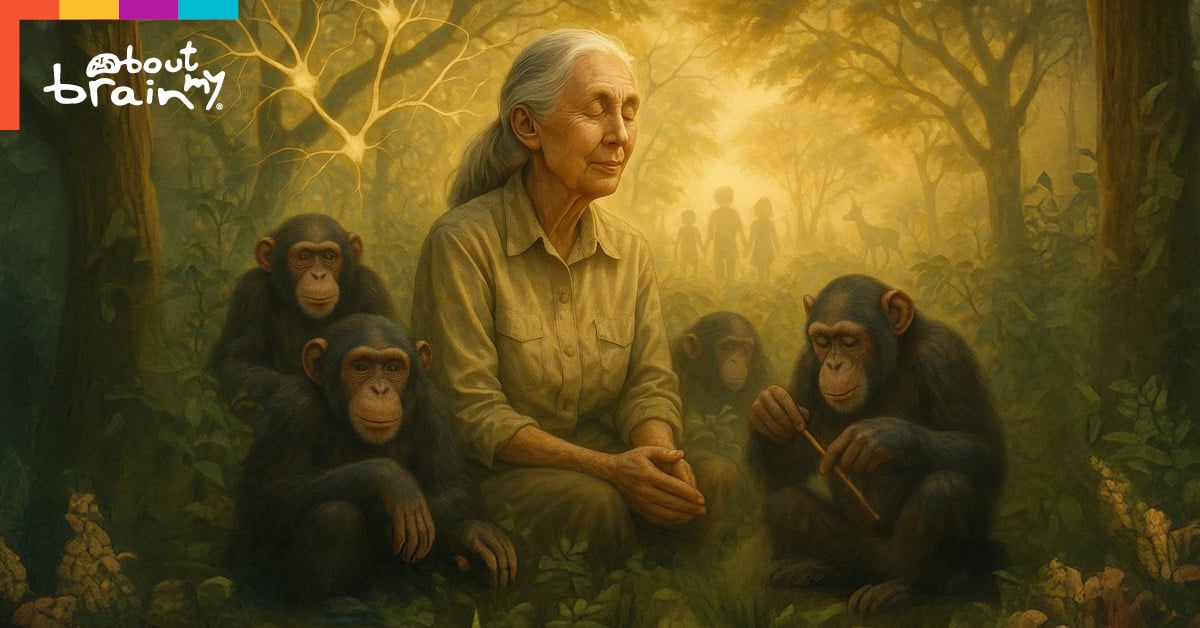
Monkey
Lightheartedness, Intelligence and Curiosity.

- Cards
- Spirit Animals Oracle Deck
- Monkey
Discovering The Monkey Spirit
The playful and mischievous monkey embodies the spirit of joy, curiosity, and the art of finding delight in the simplest of moments. Its medicine is a powerful reminder to embrace a lighthearted approach to life, fostering adaptability and flexibility as we swing through the branches of new experiences with childlike wonder.
In the monkey's presence, we are invited to release the weight of seriousness and rediscover the joy of living in the present moment. Like the agile acrobat, the monkey's spiritual energy encourages us to playfully navigate the ups and downs of life, finding laughter amidst challenges and opportunities for growth. Through its carefree demeanour, the monkey teaches us to let go of rigidity and embrace the dance of life with a playful spirit.
The monkey's medicine lies in its innate curiosity, as it explores the world with wide-eyed wonder and an adventurous heart. In its playful endeavours, the monkey reminds us to stay open to new experiences, to be curious like a child, and to see the world with fresh eyes. By maintaining a sense of curiosity, we continue to learn and grow, enriching our lives with newfound wisdom.
The monkey's playful nature also serves as a bridge to connect with others, fostering strong bonds and building a sense of community. As we interact with others in a lighthearted manner, barriers are broken down, and relationships deepen. The monkey's playful spirit reminds us that in laughter and shared experiences, we find common ground, transcending boundaries and fostering a sense of unity.
In times of stress and seriousness, the monkey's presence offers a refreshing balm, reminding us not to take life too seriously. Instead, we are encouraged to infuse our days with moments of joy, laughter, and play, allowing us to recharge our spirits and approach challenges with renewed vigour. By embracing the monkey's playful medicine, we discover that a light heart can lead us through even the darkest of times.
Prefer to listen to this article?
Check out our podcast!
Newsletter
Keep reading ↓
- Spirit Animals ↓
- See All
- Alligator
- Anaconda
- Ant
- Arabian Oryx
- Beaver
- Bee
- Beetle
- Black Bear
- Buffalo
- Butterfly
- Camel
- Cat
- Cheetah
- Chimpanzee
- Condor
- Coyote
- Crab
- Dog
- Dolphin
- Dove
- Dragonfly
- Elephant
- Elk
- Emu
- Falcon
- Flamingo
- Fox
- Frog
- Gazelle
- Giraffe
- Goose
- Gorilla
- Grasshopper
- Hawk
- Hedgehog
- Hippopotamus
- Horse
- Hummingbird
- Hyena
- Jaguar
- Kangaroo
- Kiwi
- Koala
- Koi Fish
- Komodo Dragon
- Kookaburra
- Ladybug
- Lamb
- Lemur
- Lion
- Lizard
- Llama
- Manatee
- Mandarin Duck
- Meerkat
- Monkey
- Moose
- Mountain Goat
- Mouse
- Nightingale
- Octopus
- Orca Whale
- Otter
- Owl
- Ox
- Panda
- Panther
- Parrot
- Peacock
- Polar Bear
- Quetzal
- Rabbit
- Raccoon
- Raven
- Rhinoceros
- Rooster
- Salmon
- Sea Turtle
- Seahorse
- Shark
- Sloth
- Snake
- Snow Leopard
- Spider
- Squirrel
- Starfish
- Swan
- Tiger
- Tortoise
- Whale
- Wolf
- Wombat
- Zebra
What Does The Monkey Represent?
Monkeys are fascinating creatures known for their playful and intelligent nature. One of their most notable qualities is their curiosity, as they are naturally inquisitive and eager to explore their surroundings. Monkeys are agile and dexterous, with their long limbs and prehensile tails allowing them to swing effortlessly from trees and navigate complex environments. Their adaptability is remarkable, enabling them to thrive in diverse habitats, from tropical rainforests to arid savannas. Social creatures, monkeys live in close-knit groups, forming complex social structures and engaging in various forms of communication, including vocalizations, gestures, and facial expressions. Their intelligence is evident in their problem-solving abilities and tool usage, showcasing their capacity to learn and adapt to new challenges. With their charming antics and endearing personalities, monkeys have captured the hearts of humans and hold a significant place in various cultures and folklore worldwide.
Keep reading ↓
Supporting content
Cultural and Mythological Significance Of The Monkey Spirit
The monkey holds significant cultural and mythological significance in various societies around the world. In many Asian cultures, monkeys are revered for their intelligence, agility, and playful nature. In Chinese folklore, the Monkey King, also known as Sun Wukong, is a legendary figure from the classic novel "Journey to the West." Renowned for his incredible strength and magical abilities, the Monkey King is a symbol of bravery, perseverance, and resourcefulness.
In Hindu mythology, the monkey god Hanuman is a central figure in the epic Ramayana. Hanuman is revered for his unwavering loyalty to Lord Rama and his extraordinary feats in helping Rama rescue his wife, Sita, from the demon king Ravana. Hanuman symbolizes devotion, selflessness, and the power of divine assistance.
In some African and Native American cultures, monkeys are considered trickster figures, known for their cunning and mischievous behavior. They often appear in myths and stories to teach important life lessons or highlight the consequences of arrogance and folly.
Additionally, monkeys feature prominently in art, literature, and religious symbolism. They are often depicted in paintings, sculptures, and traditional dances, representing various aspects of human behavior and characteristics.
In modern culture, monkeys have become iconic symbols in popular media and entertainment. They are featured in children's stories, cartoons, and movies, often portraying lively and amusing characters. The cultural significance of the monkey is not limited to mythology and entertainment. In some cultures, monkeys are associated with fertility, luck, and prosperity. In others, they may represent adaptability and the ability to navigate through life's challenges with grace.
Overall, the monkey's cultural and mythological significance showcases its profound impact on human imagination and spirituality. As a symbol of intelligence, playfulness, and adaptability, the monkey has carved its place in diverse cultural narratives, inspiring awe, respect, and appreciation for the wonders of the natural world and its captivating creatures.
Keep reading ↓
Supporting content
A Monkey In My Deams
Dreams about monkeys can carry various symbolic meanings, depending on the context of the dream and the dreamer's personal associations with monkeys. Generally, a monkey in a dream may represent playfulness, curiosity, and a need for more spontaneity and joy in the dreamer's waking life. The monkey's playful antics may also symbolize the dreamer's desire to break free from routine or societal expectations and embrace a more carefree and adventurous approach to life.
On a deeper level, the monkey in a dream might indicate the dreamer's instinctual nature or repressed desires. Monkeys are often associated with primal instincts and untamed energy, and their appearance in a dream could suggest that the dreamer needs to acknowledge and integrate these aspects of themselves.
In some cases, dreaming of a monkey could be a reminder to be cautious of mischievous or deceptive influences in one's life. The monkey's association with trickster figures in certain cultures may indicate the need to be vigilant against manipulation or deceitful behaviors in waking life.
Alternatively, a monkey dream may serve as a reminder of the dreamer's connection to nature and the importance of embracing their wild and intuitive side. Monkeys are creatures of the forest, and their appearance in a dream might suggest that the dreamer should reconnect with their natural environment or seek greater harmony with the natural world.
It is essential to consider the emotions and specific details of the dream to understand its meaning fully. If the dream evokes strong feelings of fear or unease, it may indicate unresolved fears or anxieties. On the other hand, if the dream is joyful and light-hearted, it could symbolize a time of playfulness and freedom in the dreamer's life.
Ultimately, the meaning of a monkey in a dream is highly personal and subjective, as dreams are influenced by the dreamer's experiences, emotions, and subconscious mind. Reflecting on the dream's context and the dreamer's current life circumstances can help uncover the deeper messages and insights that the monkey symbolizes in their dream.
Keep reading ↓
Habitat, Behaviours and Ecological Importance Of The Monkey
Habitat:
Monkeys are primates found in diverse habitats worldwide, with a preference for tropical and subtropical regions. They thrive in lush environments like rainforests, where they have access to abundant food sources such as fruits, leaves, and insects. Monkeys are skilled climbers and adapted to arboreal life, comfortably navigating the canopies of trees with the help of their prehensile tails. Some species inhabit terrestrial landscapes, including savannas and grasslands, while others are water-loving and live in mangroves and coastal areas. Their adaptability also allows them to inhabit human-altered landscapes, making them versatile creatures. Monkeys play an essential role in their ecosystems, contributing to biodiversity and enriching the natural world with their presence.
Behaviours:
- Social Interaction: Monkeys are highly social animals and live in tight-knit groups known as troops. They engage in various social behaviors, including grooming, playing, and vocalizations, which help strengthen bonds within the group and maintain social harmony.
- Tool Usage: Some monkey species exhibit remarkable tool-using behaviors. They may use sticks or rocks to extract insects from tree bark, crack nuts open, or dig for roots and tubers. This shows their cognitive abilities and problem-solving skills.
- Foraging and Feeding: Monkeys are primarily omnivores, consuming a varied diet of fruits, leaves, flowers, insects, and small vertebrates. They are skilled foragers, using their agile limbs and dexterous hands to extract and handle food items with precision.
- Communication: Monkeys communicate with one another using a combination of vocalizations, facial expressions, and body postures. Different calls and gestures convey various messages, such as warning of danger, signaling aggression, or establishing territory.
- Playful Behavior: Play is an essential part of a monkey's life, especially in young individuals. They engage in playful activities such as chasing, wrestling, and swinging from branches, which not only strengthen social bonds but also help them develop essential skills for adulthood, such as hunting and problem-solving.
Ecological Importance:
Monkeys play a crucial ecological role in the ecosystems they inhabit, contributing to the balance and health of their environments. As seed dispersers, monkeys help in forest regeneration by consuming fruits and then scattering the seeds through their droppings. This process aids in the dispersal of plant species and enhances biodiversity, ensuring the survival of various plant communities. Additionally, monkeys are key prey for a wide range of predators, including big cats and birds of prey. Their presence in the food chain helps regulate predator populations and influences the distribution of other species within the ecosystem. Moreover, monkeys are important indicators of forest health, as their abundance and behavior reflect the overall state of the habitat. Protecting monkey populations and their habitats is vital for preserving the ecological balance and long-term stability of their ecosystems, ultimately benefiting a wide array of plant and animal species that rely on healthy forest environments for their survival.
Keep reading ↓
How the Monkey Contributes To Scientific Research
The monkey, with its close evolutionary ties to humans, has been instrumental in broadening the horizons of scientific research across various domains. Their complex social structures, cognitive abilities, and behaviors have been central to primatology, providing insights into the evolutionary underpinnings of social interaction, learning, and communication. Biomedically, monkeys have played pivotal roles in understanding neurological disorders, vaccine development, and the intricate workings of genetics, largely due to their physiological and genetic similarities to humans. For instance, research using macaques has been vital in HIV/AIDS studies.
Keep reading ↓
Guided Visualization To Connect With The Monkey Spirit
Complement your ritual with...
Binaural beats!
- Find a comfortable and quiet space where you can relax without distractions. Sit or lie down in a relaxed position, take a few deep breaths, and allow yourself to let go of any tension or worries.
- Close your eyes and imagine yourself surrounded by lush greenery in a vibrant tropical forest. The air is filled with the sounds of chirping birds and rustling leaves. As you explore this magical forest, you notice a mischievous and playful energy surrounding you.
- Ahead, you spot a group of monkeys swinging gracefully from tree to tree, their agile movements captivating your attention. As you approach them, you feel a sense of curiosity and joy welling up within you.
- One monkey stands out from the rest, approaching you with a knowing glint in its eyes. This is the spirit of the monkey, and it has come to guide and connect with you.
- With a gentle nod, the monkey beckons you to join its playful antics. As you mimic its movements, you feel a newfound sense of freedom and lightness. The forest becomes your playground, and worries fade away as you embrace the monkey's carefree spirit.
- The monkey encourages you to let go of rigid expectations and embrace spontaneity in your life. It teaches you to find joy in simple pleasures, to swing through life's challenges with agility and adaptability.
- As you spend time with the spirit of the monkey, you feel a deep sense of connection with nature and your own wild instincts. The monkey's presence reminds you of the importance of play, laughter, and embracing your primal nature.
- Before you part ways, the monkey looks into your eyes, communicating a message of joy and freedom. You feel a profound sense of gratitude for the wisdom and insights the monkey has shared with you.
- As you slowly return to the present moment, carry the playful and carefree energy of the monkey's spirit with you. Remember its teachings to bring more joy, spontaneity, and wildness into your life. Whenever you encounter playful moments or feel the desire to embrace your adventurous side, remember the spirit of the monkey and allow it to guide you on your journey.
Shop
Connect with the essence of our Spirit Animals!

Beach Towel
Buy Now

Sherpa Blanket
Buy Now

Flag Wall Art
Buy Now

Oracle Decks
Buy Now
From Our Blog
Stay up to date with our latest articles!

Jane Goodall’s Legacy: Lessons On Leadership And Compassion

Empowering Leaders Through Personal Growth with Gail Eaton-Briggs

From Digital Lovers To Grandmothers-For-Hire: What Japan Teaches Us About Loneliness
Please note:
It is crucial to acknowledge that the symbology and interpretations can differ greatly among various cultures, religious ideologies, and individual viewpoints. The significance and comprehension of these spirit animals may vary depending on the particular mythological backdrop or the spiritual and philosophical framework through which they are approached. The descriptions of these Oracle Cards are based on information gathered from various sources. Our aim is to provide an overview and a fictional interpretation and we cannot guarantee the accuracy or completeness of this information. The artwork featured on these Oracle Cards have been crafted by digital artists and designers, Relmi Damiano and Sacha Damiano, in conjunction with Artificial Intelligence that has been enhanced by human intervention. The visual imagery serves as a fictional representation of some of the symbols associated with these goddesses throughout history.

